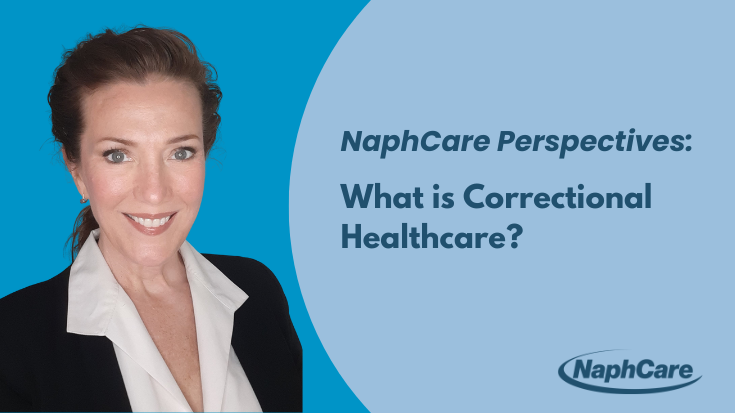
Read more
NaphCare is proud to announce that Susanne Moore, NaphCare’s Chief Operating Officer, was recognized as one of Birmingham’s top C-Suite leaders in 2024 by the Birmingham Business Journal. The Birmingham Business Journal created this award to recognize Birmingham's best and brightest C-level executives.
Susanne joined NaphCare in 2013 and worked as Executive Vice President for four years before becoming NaphCare’s Chief Operating Officer. In this role, she oversees the nationwide operations, including nearly 5,000 employees, required to deliver NaphCare’s Proactive Care Model of comprehensive healthcare to 88 city, county, and state correctional facilities.
Prior to joining NaphCare, her career included clinical practice as a Registered Nurse and experience as a litigation attorney and in-house corporate counsel. With her broad background, Susanne understands the unique environment in which NaphCare operates and brings her clinical, legal, and business expertise to the table each day.
With NaphCare’s significant growth over the past 10 years, Susanne has seen operations expand and evolve to meet new challenges in correctional facilities across the country. NaphCare has entered the market in providing comprehensive healthcare programs to state prison systems, beginning with the Arizona Department of Corrections, Rehabilitation and Reentry in 2022, and most recently the Wyoming Department of Corrections in July 2024. These contracts alone represent the addition of 14 new partner facilities and 1,720 employees for NaphCare, and they create new opportunities to expand and develop programs to meet the needs of the long-term prison population. NaphCare’s growth in local jails continues as well, and the Proactive Care Model NaphCare has put in place in jails continues to make a difference for patients in facilities across the country.
Hear from Susanne about her path to NaphCare and her experience leading NaphCare teams during this period of growth and change.
What was your path to NaphCare?
For a decade prior to coming to NaphCare, I was a litigating attorney for large law firms and in-house counsel for a university medical school, providing medical defense to physicians and hospitals. Prior to law school I was a registered nurse, working in hospitals. NaphCare hired me in 2013, primarily to oversee our legal and utilization management departments. I had owned small businesses in the past, so over time I became more involved in the operational aspects of the company. It has been a dizzyingly fast-paced yet highly rewarding ride ever since!
How has your legal and clinical background helped you in your position now?
I can honestly say I need and use every bit of the knowledge and experience I gained in 20 years of clinical and legal work prior to coming here. Correctional healthcare is complex. It spans state and federal regulations, accreditation standards, a litigious population and the mission of delivering advanced healthcare in a highly unique setting. Having this background gives me context and perspective. It helps me relate to the various disciplines of our team and speak their language, so that we can work together to streamline and improve processes.
What excites you about coming to work every day?
NaphCare has a strong culture of supportive, positive people who are focused on becoming a little better every day. Their enthusiasm creates a buzz of excitement because new projects, technology and ideas are always spinning, from every level of the company. It’s invigorating.
What helps you succeed in your demanding role?
Focusing on supporting our teams. I’m type A, so learning to effectively delegate has been, at times, a challenge for me. With our growth rate, I have had to learn that my daily priority must be recruiting, growing, supporting and retaining our talent as well as trusting them to take on bigger tasks. Fortunately, I usually find that they handle their new tasks better than I would have!
What makes C-suite leadership so important to an organization?
A well-developed C-suite provides not only creative vision but also purpose and support to the organization. While the team is accomplishing the day-to-day mission, the C-suite is identifying future trends and needs and making sure the team has all the resources they need to be both successful and sustainable.
Which of NaphCare’s core values aligns best with your leadership style?
We do the right thing. One of the biggest reasons I have stayed with NaphCare the last 11 years, and will continue to stay if I am fortunate enough to do so, is because the C-suite and our ownership are individuals of great integrity and character. I admire each of them immensely, and I appreciate so much that our leadership/ownership team makes decisions using ethics as their guidepost. I am very mission oriented, and I believe missions sustain as long as their core beliefs are based on sustainable values.
What is the most promising thing happening in correctional healthcare right now?
There is an ever-growing movement in communities and government funding to support long-term behavior modification. The underlying issues that cause non-compliance with self-care (which often results in recidivism) are complex. Solving these begins when we start asking “why” rather than judging a patient for their choices or giving up on the situation. For example, when we ask a person why they have not been taking their medication, and we sincerely listen, we gain perspective and are able to empower them to overcome their barriers. There is starting to be more funding in correctional healthcare to take this approach and to provide more resources to the patients for opioid treatment, mental health care and ongoing care in the community post-release.